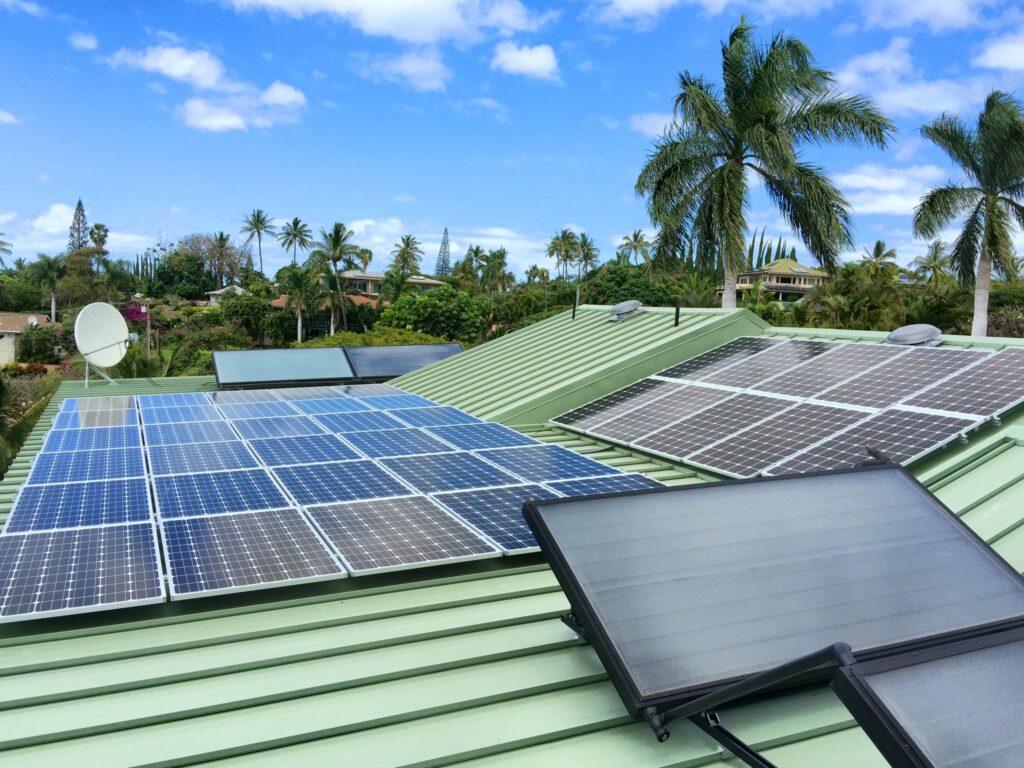Is buying or leasing solar panels in Hawaii right for you?
Firstly, let’s look at the most obvious differences between leasing solar panels in Hawaii and buying?
Leasing solar panels in Hawaii
Leasing solar panels in Hawaii makes it easier for interested businesses and homeowners who may not have the cash reserves required for the upfront payment for solar. Unlike purchasing solar panels, leasing solar panels in Hawaii doesn’t make you the owner. Rather, a third party still owns the panels.
Buying solar panels in Hawaii
When you buy solar panels in Hawaii, you’ll most likely be required to make an upfront payment, whether there’s a payment plan or not. The best part is you’ll be the owner of the solar panel, have access to several state and federal government incentives, and be able to sell it as part of your home while moving.
Leasing solar panels in Hawaii compared to buying
The following are the key differences between leasing solar panels on the island and buying:

Monthly payments
Leasing solar panels mean you’ve acquired a PPA or a solar lease. While some require certain down payments, others may not require any. Regardless of the available options, you’ll be required to pay certain amounts of money every month. Learn about the best solar financing options on Maui and tax credits.
Maintenance and repairs
If you want minimal maintenance responsibility for your solar panels, leasing solar panels on the island may be right for you. Since you’re not the owner of the solar panel, the solar leasing company will send their workers for maintenance and repair if there’s any reason for repair.
Unlike buying your own solar panel, you won’t have to worry about maintenance. However, solar panels hardly require any thorough maintenance. Most maintenance only requires washing once or twice a year. Even more, with the right warranty when you buy, there’s little or nothing to worry about in terms of repairs.
Solar incentives
Solar panel owners are eligible for federal and state government rebates and tax incentives. Leasing solar panels in Maui makes you ineligible for such benefits. For example, the solar federal investment tax credit (ITC) is currently 26% through the end of 2022.
This tax credit benefit goes to the owner of the solar system. This is one of the key benefits of buying over leasing solar panels on the island. Discover how to finance your solar system with Maul clean energy credit union.
The home can be hard to sell
While solar panels make the property more valuable, a property with leased solar panels in Maui can be difficult to sell. For example, if the panels cannot be moved, or transferred to the new owner of the property, you may be required to pay a huge sum to break the contract. This makes leasing solar panels on the island less appealing.
What’s best for you?
Review the pros and cons of buying vs. leasing solar panels in Hawaii. Make up your mind on what’s best for you and stick to it. Regardless of what you opt for, you’ll most likely be paying monthly payments for your solar panels.
Sometimes, both leasers and buyers end up paying similar amounts every month and the leaser won’t end up as the owner of the solar panels at the end of the day.


